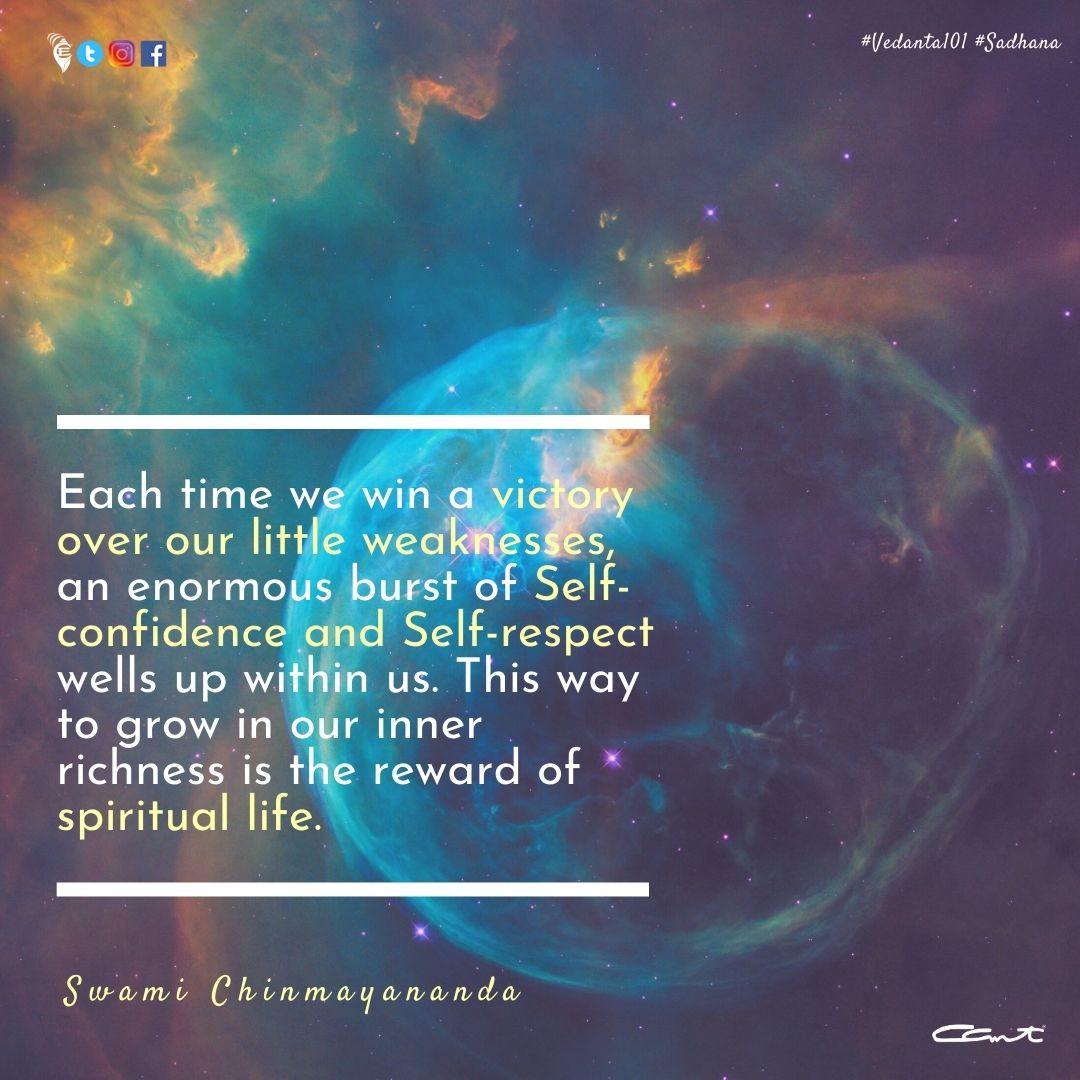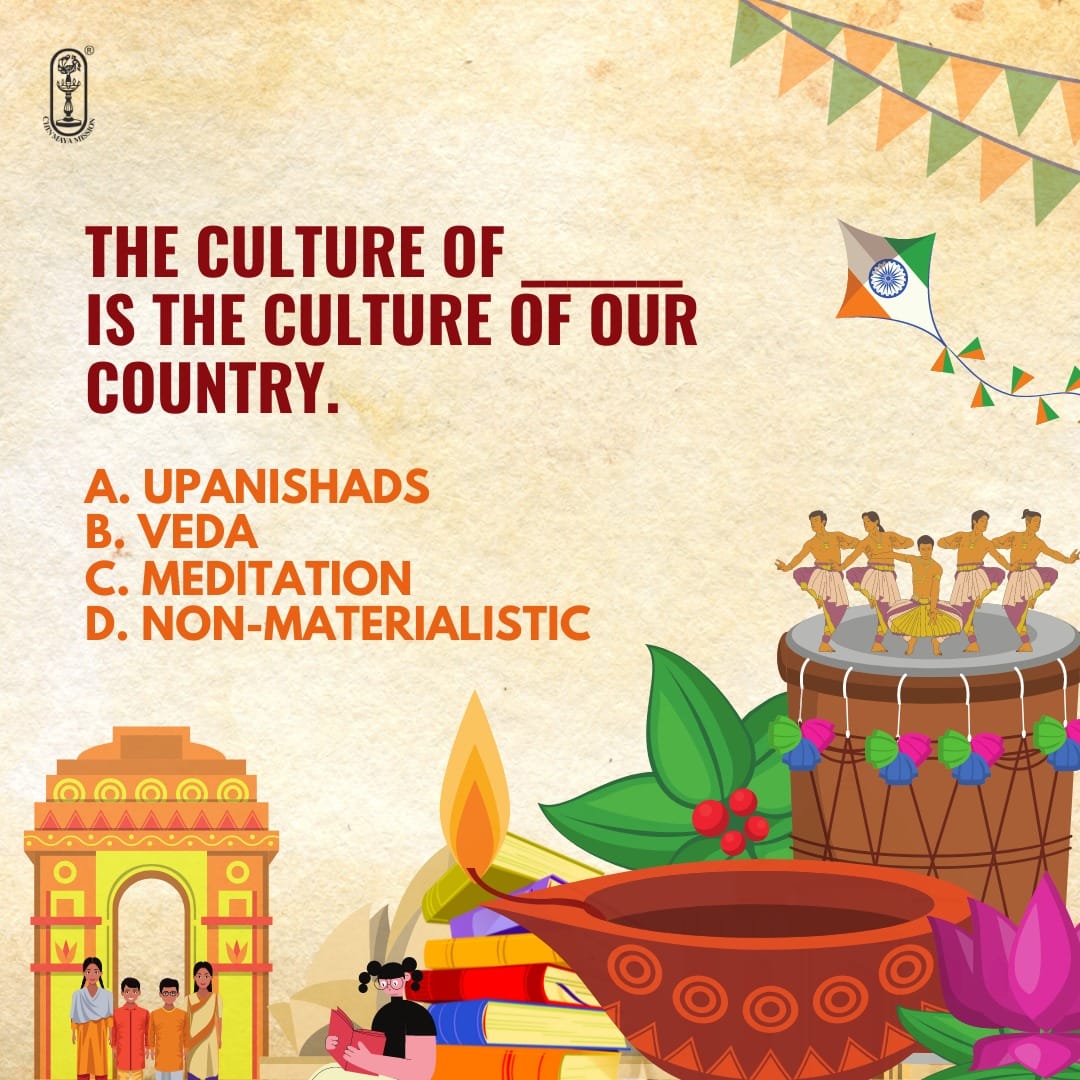On the Concept of Righteousness and Justice : 3. Swami Krishnananda
--------------------------------------------------------------------
#OPINION : Saturday, January 16, 2021. 08:09 AM. 2319.
Sub : On the Concept of Righteousness and Justice : 3. Swami Krishnananda
---------------------------------------------------------------
1.
However, the permission and concession given to desires to fulfil themselves, in the manner indicated, is to be conditioned by the great rule or law, called Dharma. If Dharma, the principle of the righteousness of the law, does not regulate the operation of desires, they cease to be aids in the movement of the spirit towards its perfection. Desires, which are like flowing rivers, get dammed up when they are bottled inside and not channelised in a systematic manner to irrigate life's wholesome involvements. Dharma is law, the regulative principle, which harmonises everything with everything else.
2.
The individual has to be a self-balanced purposiveness, integrated healthily, but not opposed to a similar need felt for self-completion and integration by the other levels of organisational procedure, namely, the family, the community, the society, the nation, and the world at large. Usually, there is an inherent urge in everyone to maintain one's own point of view even to the detriment of others, a form which desire takes when it is concentrated within the body and ignores the presence of other individuals or similar organisations. Dharma, or law, insists that desire can be fulfilled, and must be fulfilled, lest it should go amuck, but not to the disadvantage of others who also exist in the world and who too have a similar permission to fulfil their desires. There is no mutual contradiction involved in such a permission granted under the law, Rita, as the Veda would call such a universal sanction founded on perfect, impartial justice.
3.
"Do unto others as you would be done by others." "Do not do to others what you would not like to be done to yourself." For, if one wishes that everything should belong to oneself, everyone else also can entertain such a wish. Such a predicament would defeat the very purpose of the operation of any desire. Law is the principle of cooperation and sacrifice, as against competition and selfish arrogance. It is the concession which each one is expected to make in respect of everyone else, because creation, as could be seen from the above study, is a 'Kingdom of Ends', and not a restless flow of 'means' only without any 'end' to be reached.
4.
.The Veda uses the word Satya for the law of the Absolute, and Rita is the very same law operating in creation as a regulative principle, an imperative, immanent in all things. Every law is a facet of the cosmic law which is rooted in the integrality of the universe. There is a necessity to introduce a system of coherence among the visible particulars, so that they form a harmonious whole, a hierarchy of completeness, and not a mess of jarring notes without any relation among themselves. Law exists, because the Absolute is, God rules all things. Law is the manner in which the indivisibility of the Absolute manifests itself through space and time.
5.
The great regulative system of the administration of life, known as Varna Ashrama Dharma, sums up the way of a perfect life. While what we may call the horizontal integration of life by means of a blend of spiritual power, political power, economic power and man power in life is ensured by the intelligent mechanism of Varna Dharma, which is not a distinction of colour, but a mutually involved differentiation of each one's capacity to participate in the fulfilment of life, the vertical ascent in the qualitative wholeness of each person is patterned in the rule of the Ashrama Dharma, representing the stages of study, discipline, conservation of energy and continence; the ordained fulfilment of the material, social and emotional requirements of life; a gradual freedom from every kind of externally oriented involvement; and the final pursuit of absolute universality.
6.
The horizontal stratification was designed by the participating phases of cooperation known as Brahmana, Kshatriya, Vaisya and Sudra; the vertical discipline and gradual perfection of the person was laid down in the well-known stages of the Brahmacharin, Grihastha, Vanaprastha and Sannyasin. Neither is the Varna system a caste-oriented gradation of the superior and the inferior, nor the Ashrama pattern a social enactment. Both represent a spiritual necessity and the only way in which human society can exist and thrive in harmony, and the individual progress upward towards a gradual realisation of universality.
7.
There is no comparison in this system of stratification, but a necessary and just participation and healthy integration of social and personal life. India's culture never held that negation is the law of life; for it fulfilment is a state that has to be reached by working through the media of every disciplinary process, all which is equally important. The stages of evolution do not brook comparison. Each stage becomes as important as any other, when one finds oneself in it.
8.
Life is an inward attainment of oneself with a cosmic conditioning. The inwardness, being constituted of the different layers of personality, has to be taken into consideration in all its degrees when one attempts to live a life of perfection. The inwardness is of a graded form. There is no sudden contact of one level with the rest of reality, except through the necessary stages. The human individual is formed of several psychic vestures, each of which is to be treated well by paying its due, which is accomplished in the fourfold stratification of cooperation and the stages of life. Time is a movement towards eternity.
To be continued ....
============================================




Comments